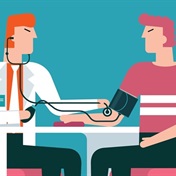"It is interesting that a large decline in blood pressure occurs during the daytime sleep-onset period only when sleep is expected," Dr Greg Atkinson told Reuters Health. "When subjects rest in a supine position, the same reduction in blood pressure is not observed," he said.
This blood pressure reduction may be associated with the lower coronary mortality rates seen in Mediterranean and Latin American populations where siestas are common, Atkinson, of Liverpool John Moores University, UK, and colleagues report in The Journal of Applied Physiology.
Heart rate also reduces
The investigators assessed cardiovascular function (blood pressure, heart rate, and measurements of blood vessel dilation) while nine healthy volunteers, 34 years of age on average, spent an hour standing quietly; reclining at rest but not sleeping; or reclining to nap. All participants were restricted to four hours of sleep on the night prior to each of the sleep laboratory tests.
During the three phases of daytime sleep, the researchers noted significant reductions in blood pressure and heart rate. By contrast, they did not observe changes in cardiovascular function while the participants were standing or reclining at rest.
"Findings show that the greatest decline in blood pressure occurs between lights-off and onset of daytime sleep itself," Atkinson told Reuters Health.
During this sleep period, which lasted 9.7 minutes on average, blood pressure decreased, while blood vessel dilation increased by more than 9%.
"There is little change in blood pressure once a subject is actually asleep," Atkinson noted, and the researchers found minor changes in blood vessel dilation during sleep.
Future research will examine whether siesta takers are more prone to morning activities and if this morning exercise influences subsequent blood pressure responses to an afternoon nap, Atkinson said. (Joene Hendry/Reuters Health)
SOURCE: The Journal of Applied Physiology, October 2007.
Read more:
Sleep linked to blood pressure
Blood pressure should dip at night




 Publications
Publications
 Partners
Partners










